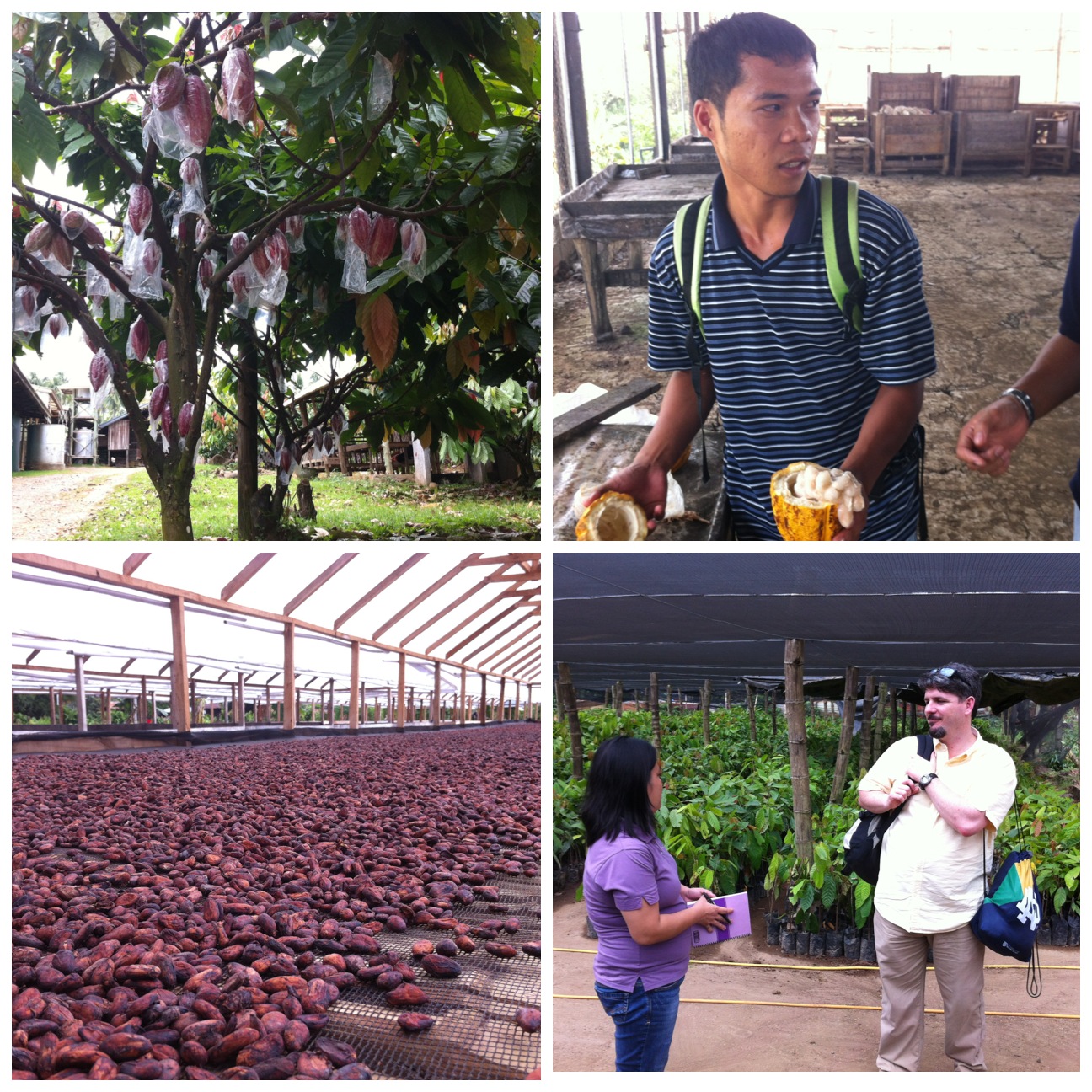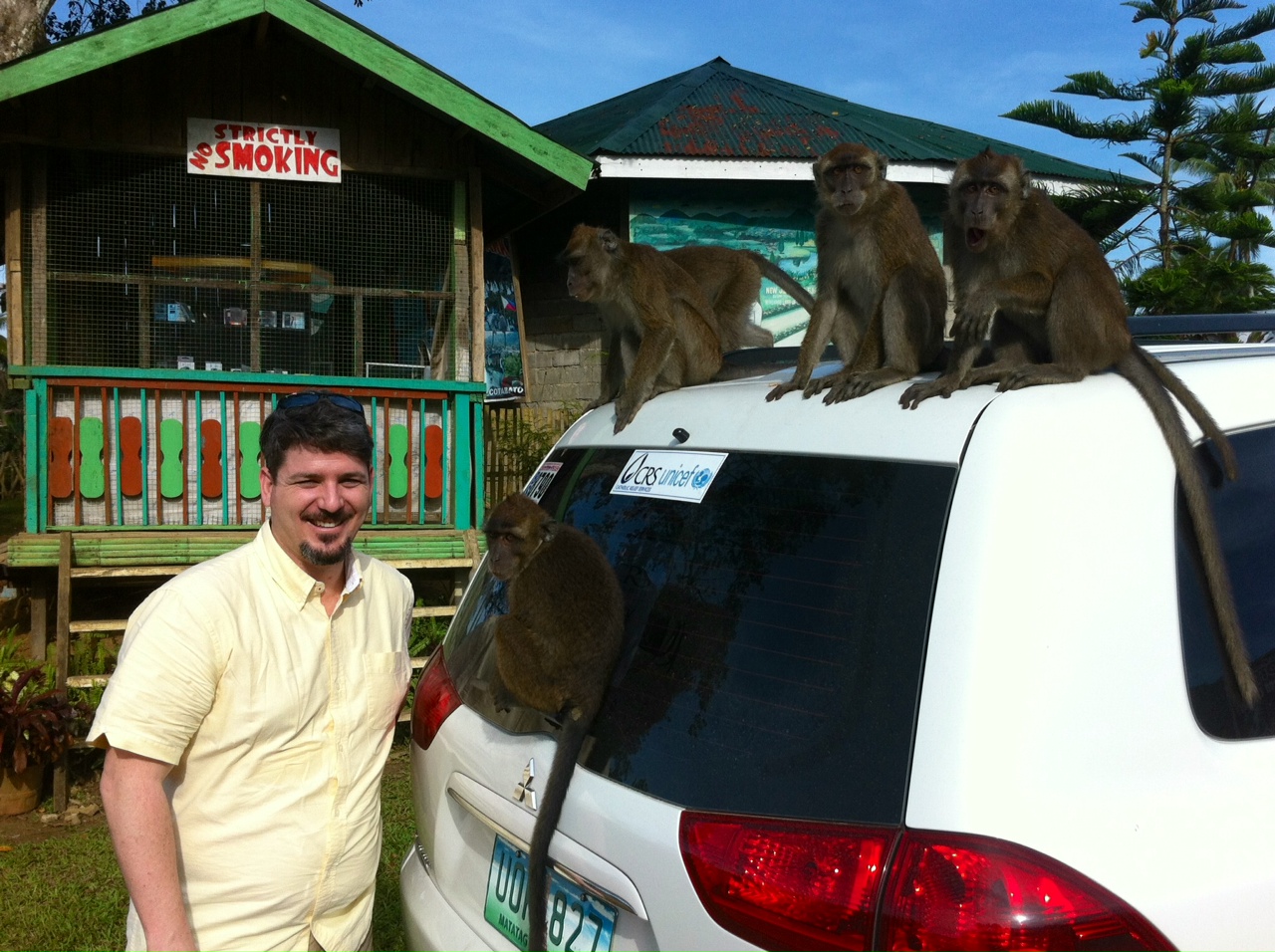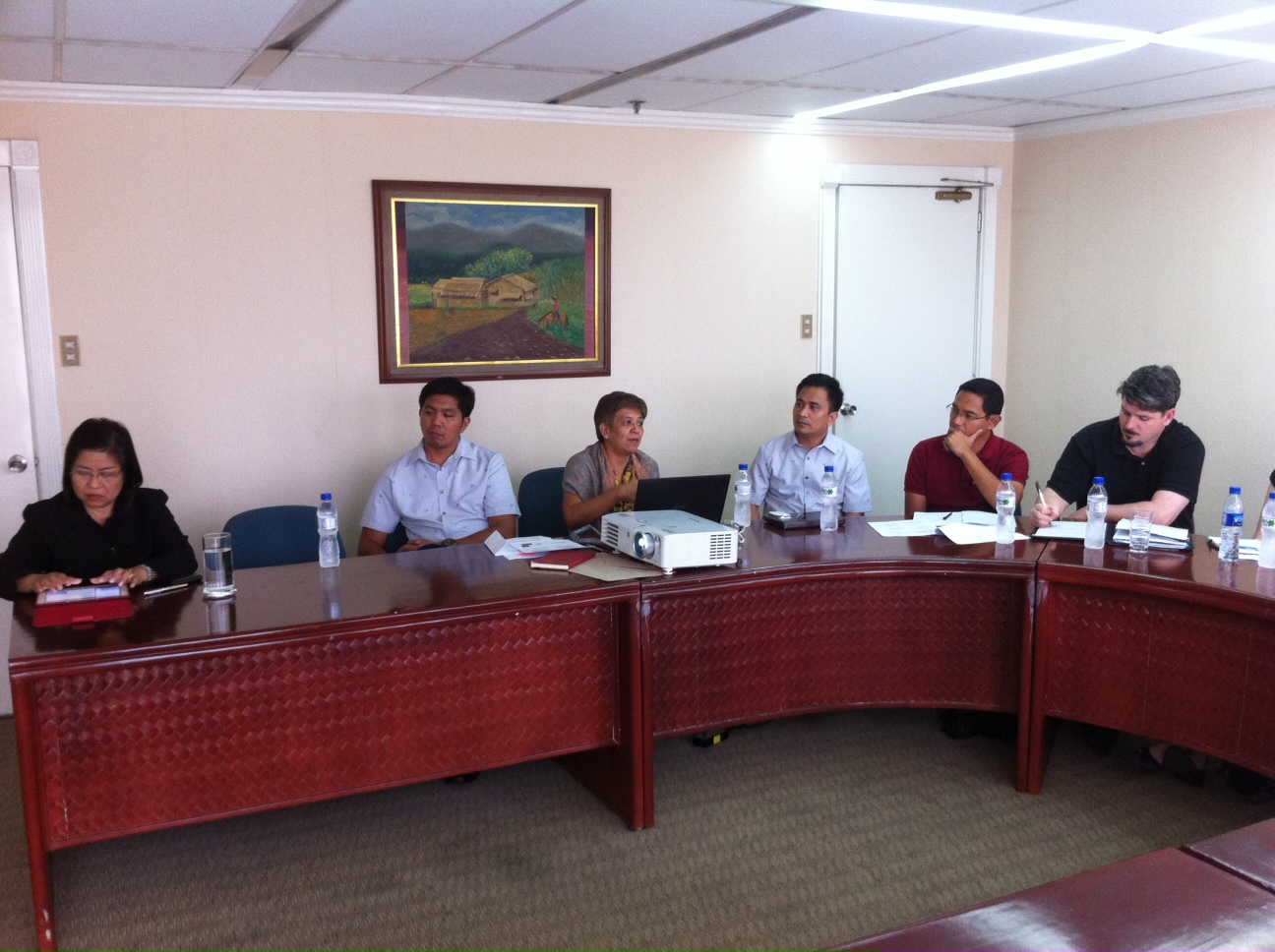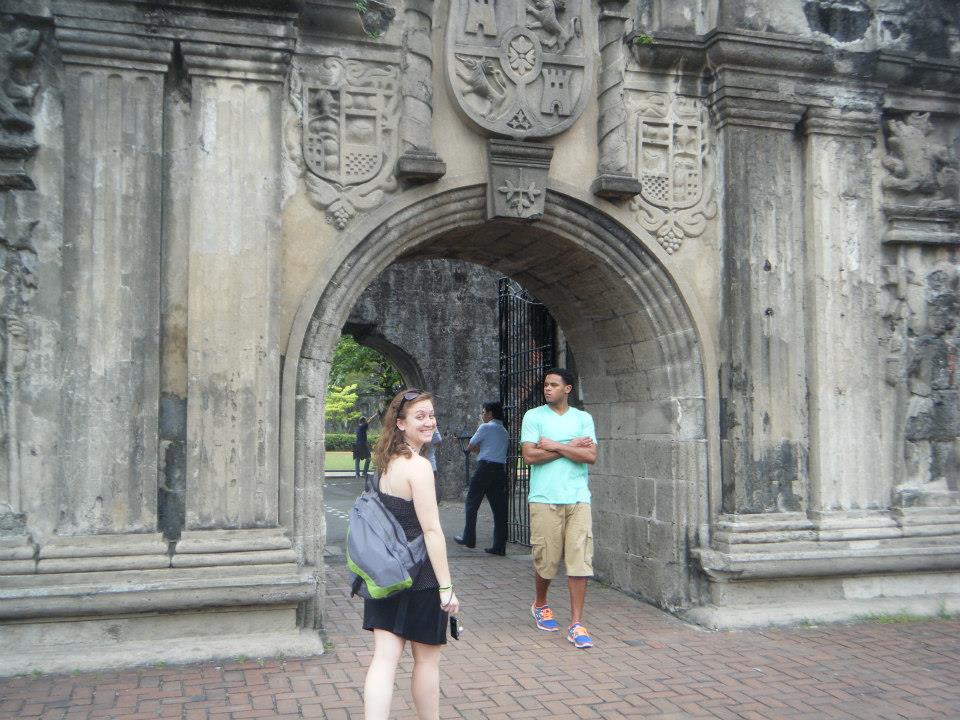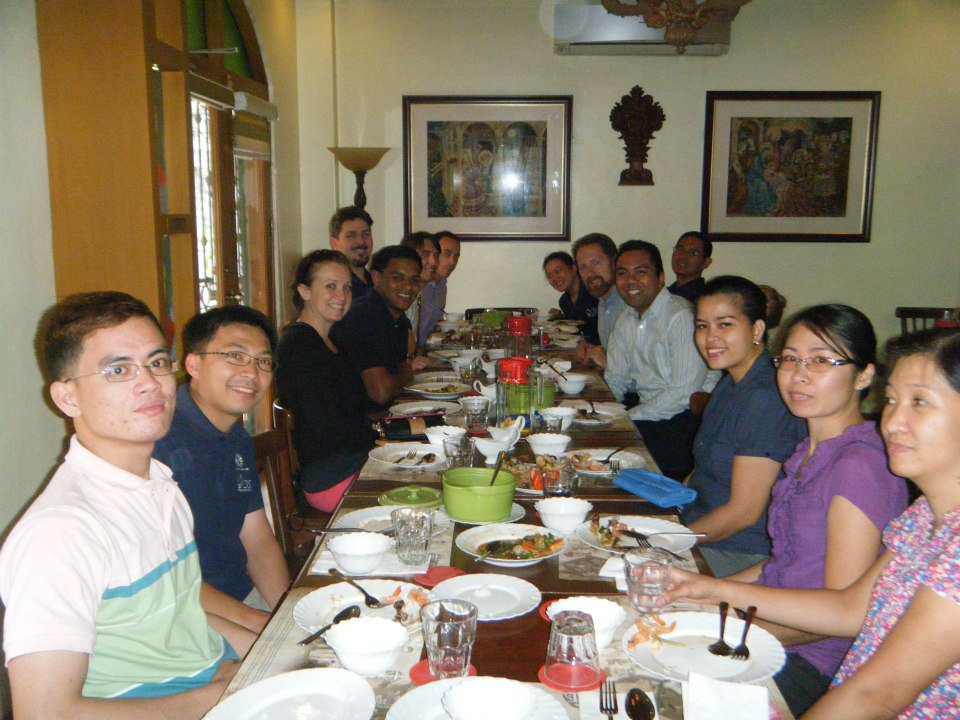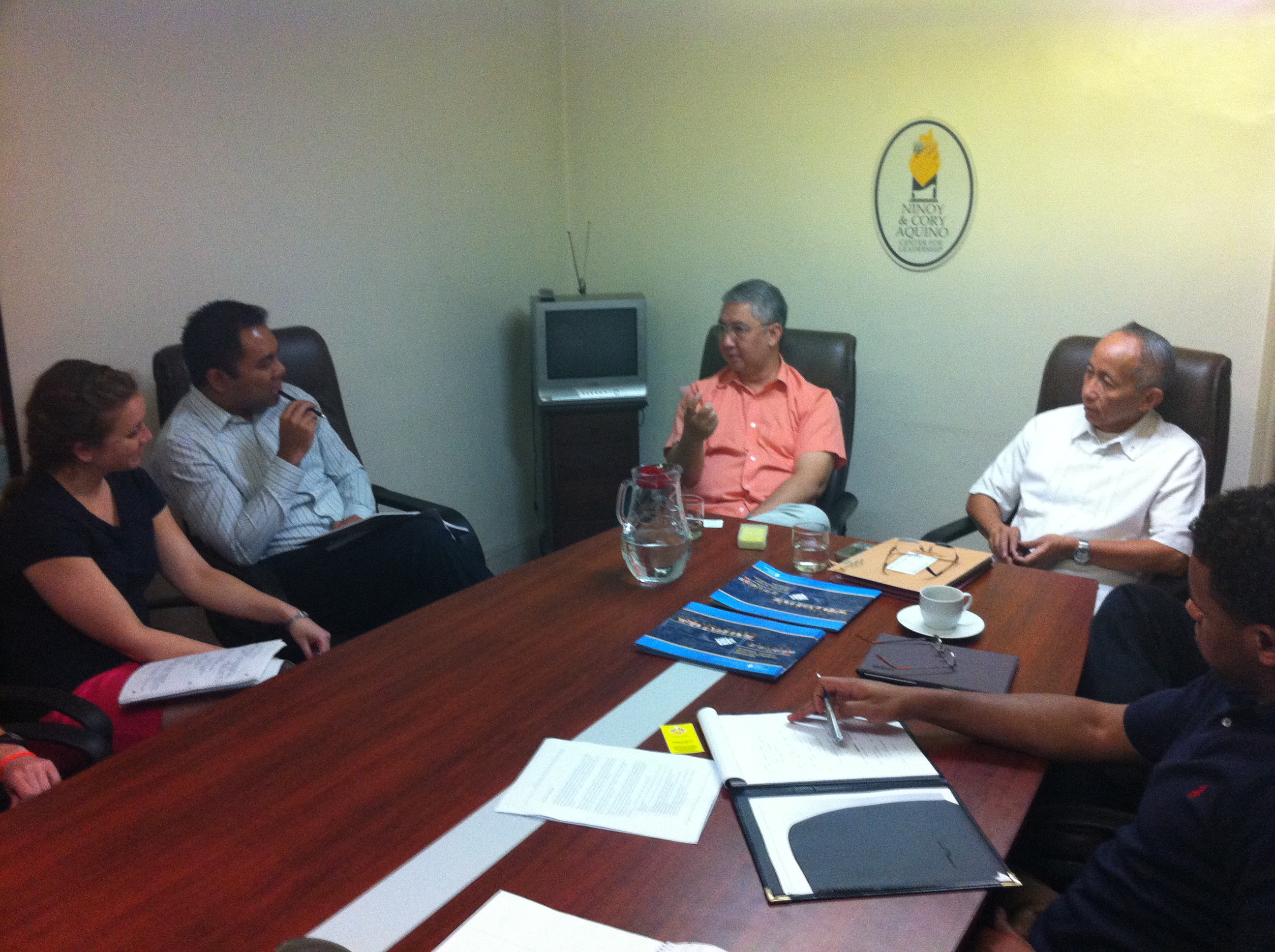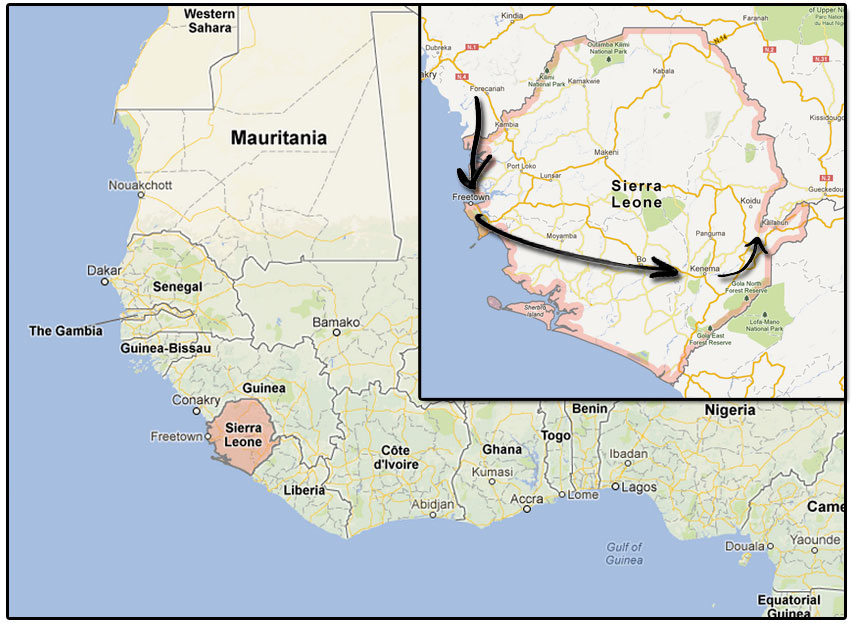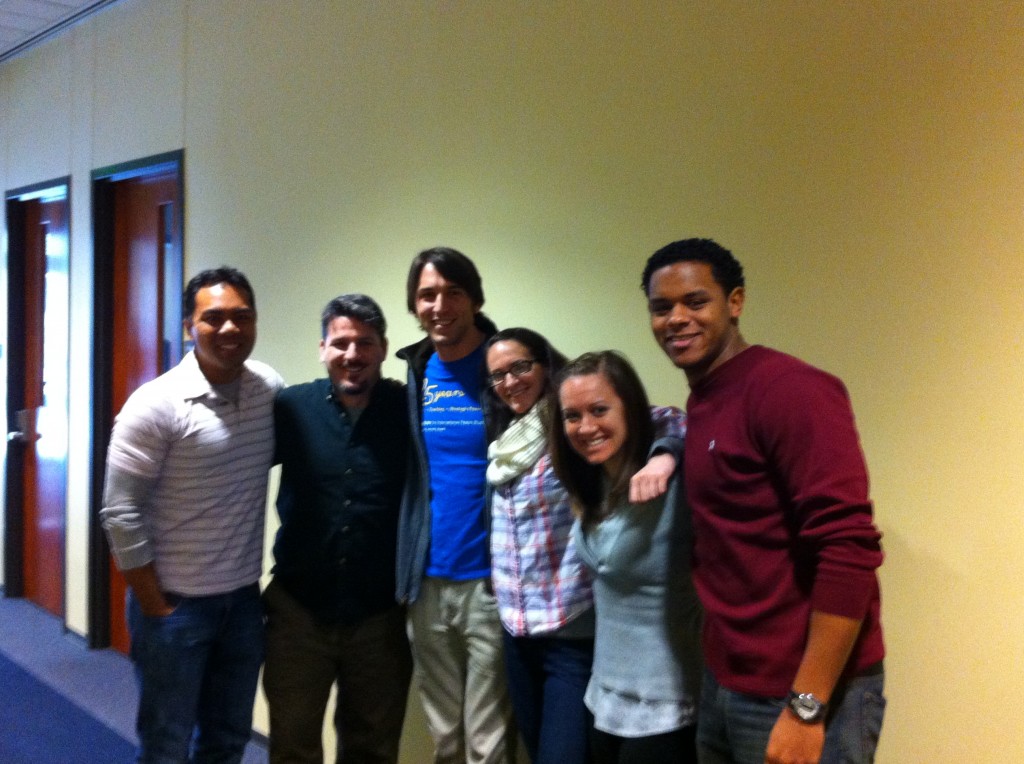The last couple of days the team remained divided between northern and southern Philippines. Team A visited cooperative societies and clusters of farmers organized by CRS and their local NGO partners, and logged lots of hours on the road.
Team B interviewed a private rice trader and consolidator, a cooperative bank that provides microfinancing for farmers, Nestle’s coffee purchasing department, a group of farmers from the greater Cagayan de Oro area, and an organization that organizes farmers to connect vegetable farmers to institutional buyers.
The teams have been hearing near consensus on what some of the problems are for small farmers in the Philippines. When farmers do not have access to formal financial institutions, they are forced to borrow at astronomical interest rates from local, informal lenders, trapping farmers in a cycle of poverty. We’ve seen and heard many examples of farmers organizing themselves, with the assistance of NGO and government programs, and in doing so, circumventing the trader by connecting directly with the market. The coming days will involve more meetings and interviews and the team will start putting together our information to work on our recommendations.
Tomorrow the team is taking a day off and we’ll be exploring a volcano outside of Manila and enjoying some much needed relaxation.


